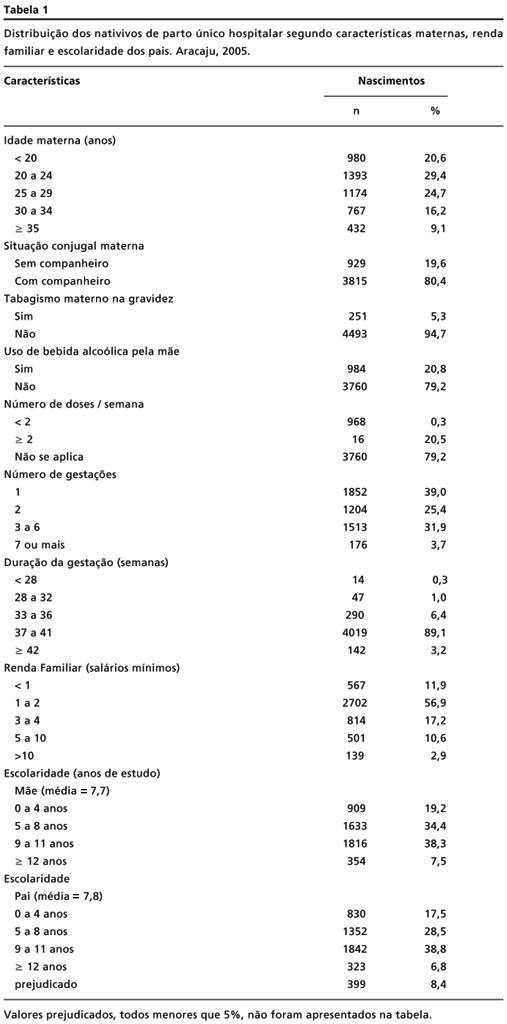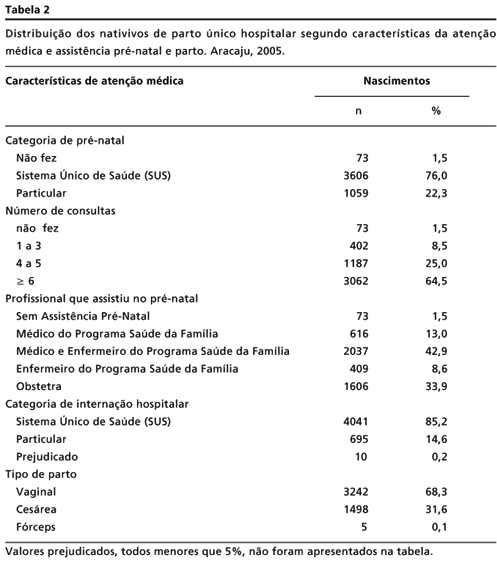OBJECTIVES: to describe the characteristics of pregnancies, deliveries and the status of newborns at birth in the Metropolitan Area of Aracaju. The main demographic and socioeconomic characteristics and details of the medical care given to the population under study are presented. METHODS: a cross-sectional study was carried out of all deliveries in the maternity hospitals of Aracaju, in the State of Sergipe, Brazil, from March-July 2005. All mothers who gave birth to a single live baby were interviewed regarding their background, reproductive history and sexual life. Hospital records, including the babies' weight, height and cephalic perimeter, were obtained and all information transferred to a standardised questionnaire. Data were compared to equivalent findings from other studies in Brazil. RESULTS: there were 4746 single live births during the study period in Aracaju. The majority of mothers (69%) were considered poor (income <3 minimum wages). Adolescent mothers comprised 20.6% of the population. The figures for low birth-weight (7.2%) and prematurity (7.7%) were similar. Almost all mothers (98.3%) received prenatal care, 76.0% from public services - the Sistema Único de Saúde (SUS) -which financed most deliveries. Caesarean sections accounted for 31.6% of all deliveries. CONCLUSIONS: deliveries in Aracaju's showed good performance with a lower rate for Caesarean sections, prematurity, and low birth-weight than Ribeirão Preto, São Luís and Pelotas. Perinatal health planning may benefit from this kind of study.
Child health; Mother's health; Birth; Delivery; Newborn





